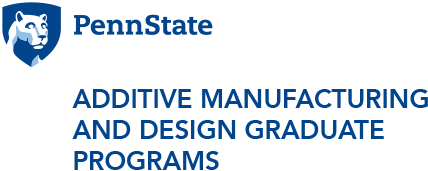
Labs and Facilities
Additive Construction Lab
Additive Construction Lab (AddConLab) is a multi-disciplinary effort between the College of Arts and Architecture and the College of Engineering, housed in the Civil Infrastructure Testing and Evaluation Laboratory (CITEL). Our mission is to explore large-scale additive construction and fabrication aware design processes.
Key Faculty: José Pinto Duarte
Advanced Composites & Engineered Materials Group (ACEMG)
Our long-term research goal is to enable bulk application of novel multi-scale engineered materials in next-generation structures, devices, and systems in extreme environments including the space.
Key Faculty: Namiko Yamamoto
Advancing Manufacturing and Applications through Measurement Science
Our group focuses on advanced measurements and well-defined materials to provide fundamental insights into how to improve processing and properties of materials, in particular for advancing manufacturing of plastics.
Key Faculty: Bryan Vogt
Antenna and Radiocommunication Laboratory
Innovative engineering of antennas, circuits, and beamforming systems through expertise in applied electromagnetics, biologically-inspired engineering, materials science, and autonomous systems.
Key Faculty: Gregory Huff
Argüelles Research Group
Our group focuses on the nondestructive characterization of materials obtained through advanced processing methods using a mix of experimental ultrasonic testing and wave propagation modeling.
Key Faculty: Andrea Argüelles
Basak Laboratory
We research materials and manufacturing methods to understand their coupled effects on properties.
Key Faculty: Amrita Basak
Bio-Soft Materials Laboratory (B-SMaL)
We engineer granular hydrogels made up of microscale building blocks for the 3D printing of in vitro tissue and disease models and in vivo tissue regeneration.
Key Faculty: Amir Sheikhi
Center for Innovative Materials Processing through Direct Digital Deposition (CIMP-3D)
CIMP-3D provides world-class capabilities and facilities to Penn State researchers in additive manufacturing technology to benefit our broad range of government and industrial sponsors.
Key Faculty: Ted Reutzel, Allison Beese, Guha Manogharan
Cheng Research Group
Our lab focuses on soft and dissolvable multimodality sensors for biomedicine, which links materials, engineering with the life sciences, and biomedicine.
Key Faculty: Larry Cheng
High Pressure Combustion Laboratory
Cryogenic Combustion Laboratory
The CRL, HPCL, and CCL conduct research in fundamental and applied combustion, energetic materials, propulsion, and nanotechnology.
Key Faculty: Richard Yetter
Complex Systems Monitoring, Modeling and Control Laboratory
Sensor-based modeling and analysis of complex systems for process monitoring/control, system diagnostics/prognostics, quality improvement, and performance optimization.
Key Faculty: Hui Yang
Convergence Center for Living Multifunctional Material Systems
The Convergence Center for Living Multifunctional Material Systems (LiMC2) is a research partnership between Penn State and the University of Freiburg, focused on materials discovery. In particular, the research focuses on designing sustainable materials that are biological or inspired by biological principles.
Key Faculty: Zoubeida Ounaies
Engineering Design Optimization Group Lab
The EDOG lab focuses on design optimization and related work, including design for additive manufacturing (DfAM), topology optimization, adaptive structures, compliant mechanisms, and medical devices.
Key Faculty: Mary Frecker
Experimental and Computational Convection Laboratory
The Experimental and Computational Convection Lab focuses on studies of convective heat transfer and aerodynamics for aerospace applications, particularly turbine cooling and additive heat exchangers.
Key Faculty: Stephen Lynch
ForMat (Form and Matter) Lab
ForMat Lab is a design and research lab located within the Stuckeman Center for Design Computing, exploring the relationships between matter and form mediated through the use of digital technologies.
Key Faculty: Benay Gürsoy Toykoç
Georgakopoulos-Soares Lab
The Georgakopoulos-Soares Lab uses computational approaches across basic science research problems and in translational medicine, including computational biology, engineering, and medical applications.
Key Faculty: Ilias Georgakopoulos-Soares
Lear Laboratory
In the Lear Laboratory, we use the photothermal effect of nanoparticles to provide on-demand curing of thermally cured thermosets — a process that enables direct printing of such materials.
Key Faculty: Benjamin Lear
Made By Design Lab
Our mission is to encourage informed and inspired engineering design using AM technology. We do this by leveraging advances in the realms of design complexity, design guidelines, and design thinking.
Key Faculty: Nicholas Meisel
Manufacturing Processes and Machines Lab
This lab group focuses on the fundamental science, modeling, and development of manufacturing processes and machines.
Key Faculty: Ed De Meter
Metals, Ceramics and Coatings Processing (MCCP) Department
The MCCP focuses on a variety of materials processing, synthesis, and manufacturing capabilities, including PVD coating processes, field-assisted sintering, cold spray, and additive manufacturing.
Key Faculty: Douglas Wolfe
Modeling of Welding and 3D printing
We work on metallurgy, mechanistic modeling, and machine learning. Using models of heat transfer, and fluid flow, we simulate solidification, grain structure, microstructure, defects, and stresses.
Key Faculty: Tarasankar DebRoy
Multiscale Mechanics of Materials Lab
The Beese group researches the mechanical behavior of materials, and, in particular, how the mechanical behavior of a material is dictated by its microstructure. The group uses a suite of experimental techniques to characterize the microstructure of a material and measure its multiaxial plasticity and fracture behavior. The group also develops computational models, over multiple length scales, to further understand the links between microstructure and mechanical behavior of these materials, eventually defining predictive plasticity and fracture models.
Key Faculty: Allison Beese
Ozbolat Lab
Ozbolat Lab at Penn State focuses on establishing cutting-edge bioprinting science and technology for engineering various different tissues.
Key Faculty: Ibrahim Ozbolat
Penn State Humanitarian Engineering and Social Entrepreneurship (HESE) Program
HESE is an integrated learning/research/entrepreneurship program focused on the rigorous research, design, field-testing, and launch of technology-based enterprises in low- and middle-income countries.
Key Faculty: John Gershenson
Penn State Ultrasonics Lab (PennSUL)
PennSUL is comprised of faculty in engineering science and mechanics, post-docs, graduate students, and undergraduates. PennSUL is dedicated to uncovering new and exciting uses for ultrasonic waves including nondestructive ways to measure grain size, detect/locate material impurities, and measuring elastic properties.
Key Faculty: Cliff Lissenden, Christopher Kube, Parisa Shokouhi
Phases Research Lab
Phases Research Lab works on properties of phases including phase stability, phase transformation, and phase properties through first-principles calculations and thermodynamic modeling.
Key Faculty: Zi-Kui Liu
Polymer Membranes for Environment, Energy, and Health
We study the relationship between polymer chemistry, processing, structure, and transport properties for separation science. Specifically, we explore the influence of polymer’s chemical and physical structures on transport properties such as sorption, diffusion, and permeation of small molecules in polymers and polymer-based materials. These fundamental studies are critical for membranes for liquid, gas and vapor separations, energy storage, selective removal of unwanted molecules from various chemical streams, biomedical devices, controlled drug delivery, and barrier materials for food and packaging.
Key Faculty: Hee Jeung Oh
Process Physics, Analytics and Engineering
We develop advanced processes, materials, components, and systems using additive manufacturing techniques. We also do material characterization, mechanical testing and corrosion analysis.
Key Faculty: Mala Sharma
Reinhart Research Group
We use machine learning and physics-based simulations to understand and design next-generation materials and manufacturing processes.
Key Faculty: Wesley Reinhart
Sinnott Research Group
We investigate materials at the atomic scale using a combination of first principles, electronic structure calculations, and classical simulations using many-body, reactive potentials.
Key Faculty: Susan Sinnott
Steady Thermal Aero Research Turbine (START) Lab
START focuses on innovating turbine cooling, developing instrumentation, advancing additive manufacturing, and integrating sensors into additively manufactured turbine components.
Key Faculty: Reid Berdanier
Technology and Human Research in Engineering Design (THRED) Lab
The THRED Group is comprised of an interdisciplinary group of researchers who are exploring people, products, and processes and the interactions between each of them.
Key Faculty: Jessica Menold
The Mechanism Collective
The Penn State Mechanism Collective is focused on developing the theories and tools that enable compliant mechanism design, including origami-based, space, deployable, and medical devices.
Key Faculty: Jared Butler
The SHAPE Lab (Systems for Hybrid-Additive Process Engineering)
Dr. Manogharan’s lab focuses on advancing additive manufacturing: design, material development, and biomedical applications. Additional areas of research include 3D sand printing and hybrid AM.
Key Faculty: Guha Manogharan
Tribology
Investigates the interaction and degradation/wear and lubricity of materials, coatings, and surfaces under various forms of relative motion.
Key Faculty: Albert Segall
Tri-Structures Research Laboratory
Research in the Tri-Structures Laboratory (microstructures, mechanical structures, and data structures) focuses on developing new methods for quantifying and understanding material deformation.
Key Faculty: Darren Pagan
van Duin Group
The van Duin Group develops and applies reactive force field simulation methods, which enable large scale (10,000 atoms), long-time (10 nanosecs) fully reactive simulations on complex materials.
Key Faculty: Adri van Duin
Zarzar Lab - Dynamics Microscale Materials
We study reconfigurable soft matter and direct laser writing of nano/microscale materials.
Key Faculty: Lauren Zarzar


